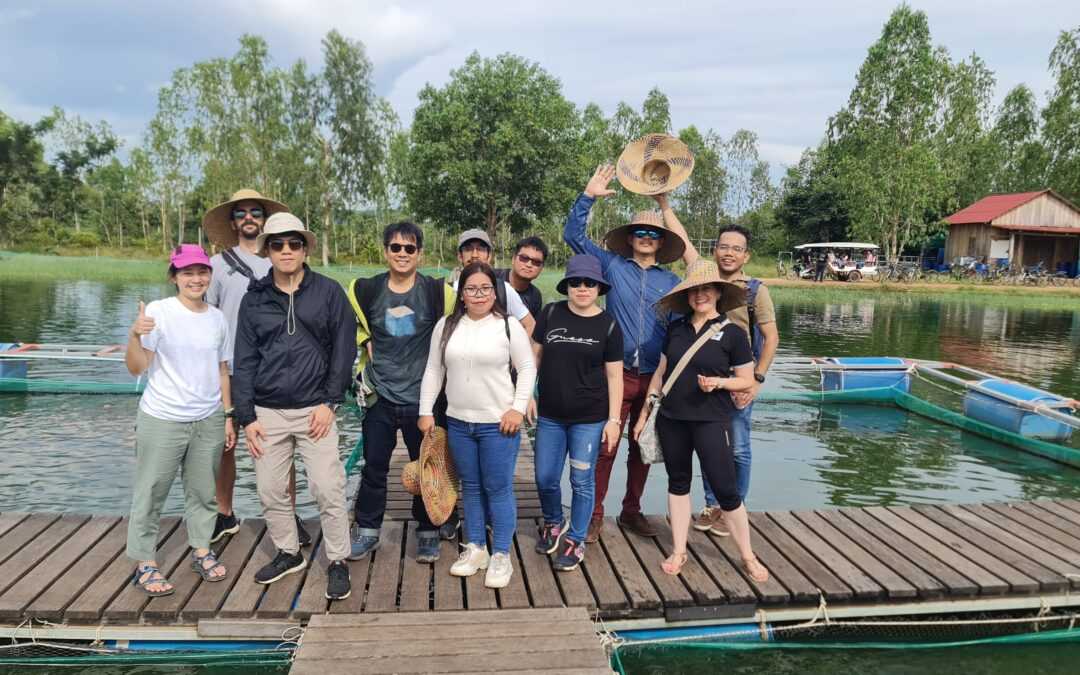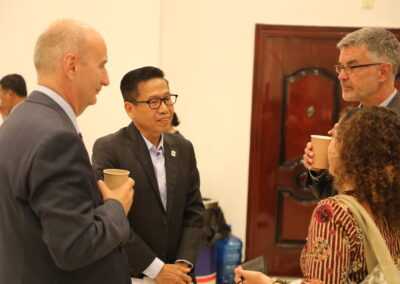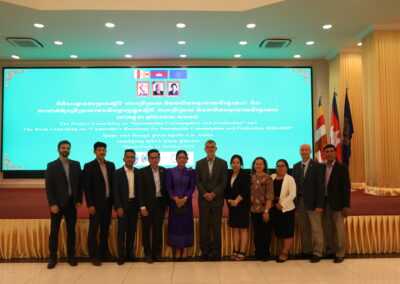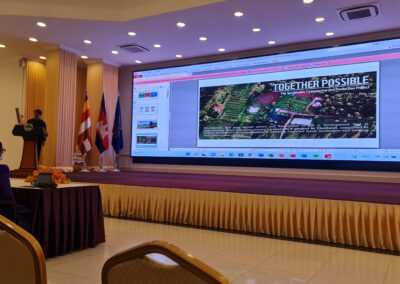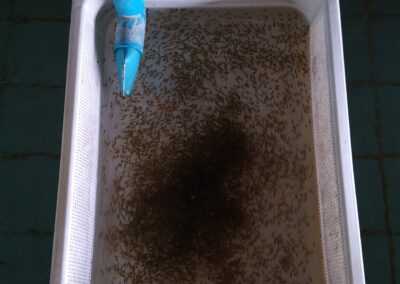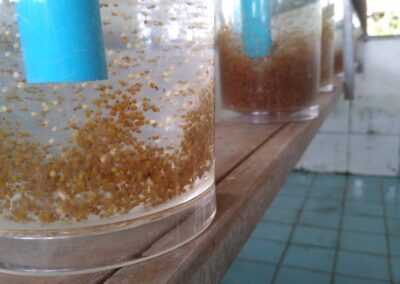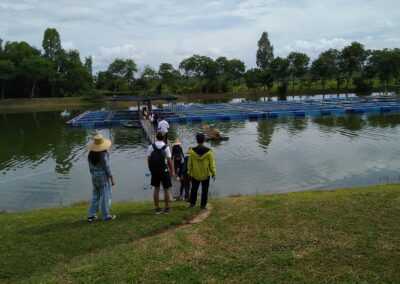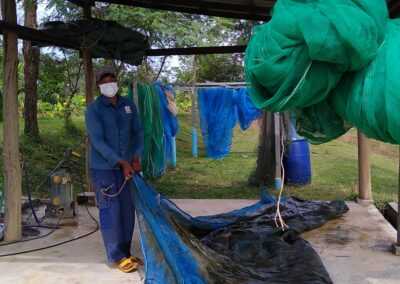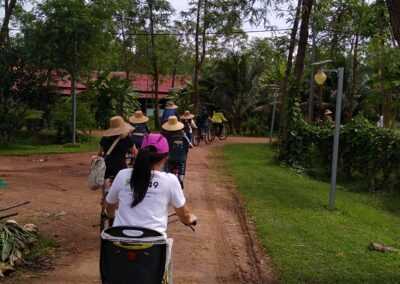© WWF-Cambodia

On 11 October 2022, WWF’s Future Food Together officially kicked-off the project “Sustainable Consumption and Production IKI SCP Asia Phase II” in Phnom Penh, Cambodia. While the new project represents phase II for Thailand, Cambodia is new in the Future Food Together family. The event was hosted by the Ministry of Environment (MoE) and coincided with the launch of Cambodia’s Sustainable Consumption and Production (SCP) Roadmap.
In Cambodia, the project was launched to support the country’s efforts in building sustainable practices in food systems – from production to consumption – while increasing resource efficiency and helping the government and people tackle climate change and putting nature and biodiversity on the path to recovery. In alignment with Cambodia’s new 14-year SCP Roadmap developed by the National Council for Sustainable Development (NCSD) the project will promote SCP through a range of complementary activities in collaboration with government institutions, private sector companies, farmers, and civil society.
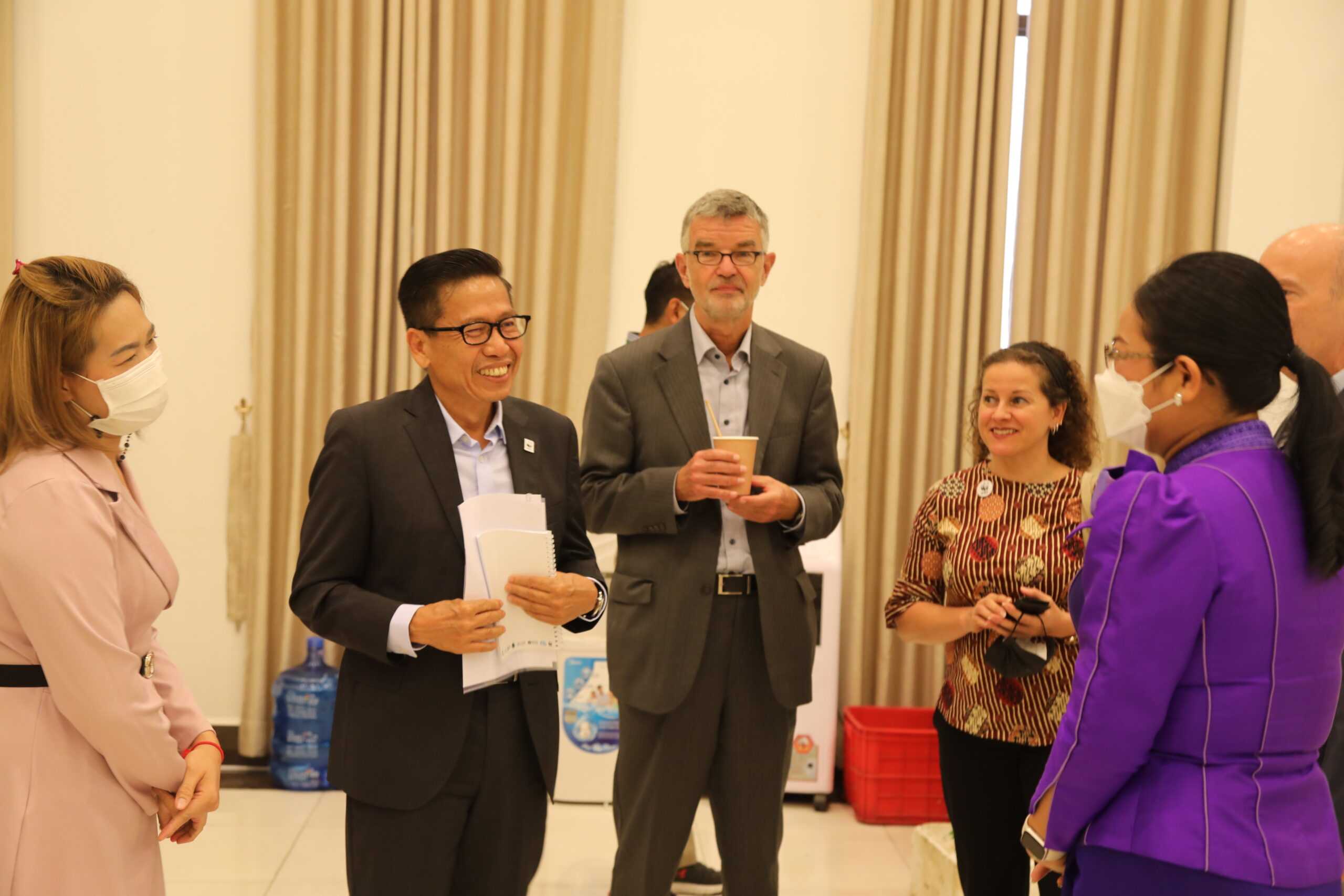
At the kick-off event (from right to left): H.E. Ngin Lina (Deputy Director General, General Directorate of Policy and Strategy, MoE); Tanja Ploetz (Programme Lead, Future Food Together); Dr. Ulf Jaeckel (Head of Division, European and International Adaptation to Climate Change, German Federal Ministry for the Environment, Nature Conservation, Nuclear Safety and Consumer Protection); Teak Seng (Country Director of WWF-Cambodia); plus a member of MoE’s organising team © WWF-Cambodia
Official project inception in Phnom Penh
As Teak Seng, Country Director of WWF-Cambodia stressed, the transition to sustainable consumption and production depends upon aligned efforts across sectors and from all parts of society. The project will mobilize stakeholder participation and focus on promoting pilot sustainable production areas in Mondulkiri province, connecting them to markets in major cities, including Phnom Penh, and increasing the “green consumers” base.
To achieve its goals, the project will apply local solutions such as the introduction of accessible sustainability standards and providing inputs to policy-making processes, but it will also act at global level given the interconnected nature of the planet’s agri-food system. In alignment with SDG targets, the project will globally promote the adoption in multilateral frameworks and agreements of a “sustainable food systems approach” and of inclusive governance mechanisms contributing to the UN One Planet Network, which just renewed its Heads of State Mandate until 2030. In this sense, Dr. Ulf Jaeckel remarked on the great opportunities that this project presents both to Cambodia and the planet.
“We hope that throughout the SCP project implementation, Cambodia can be one of the models to strike for climate change adaptation and resilient communities strengthening”.

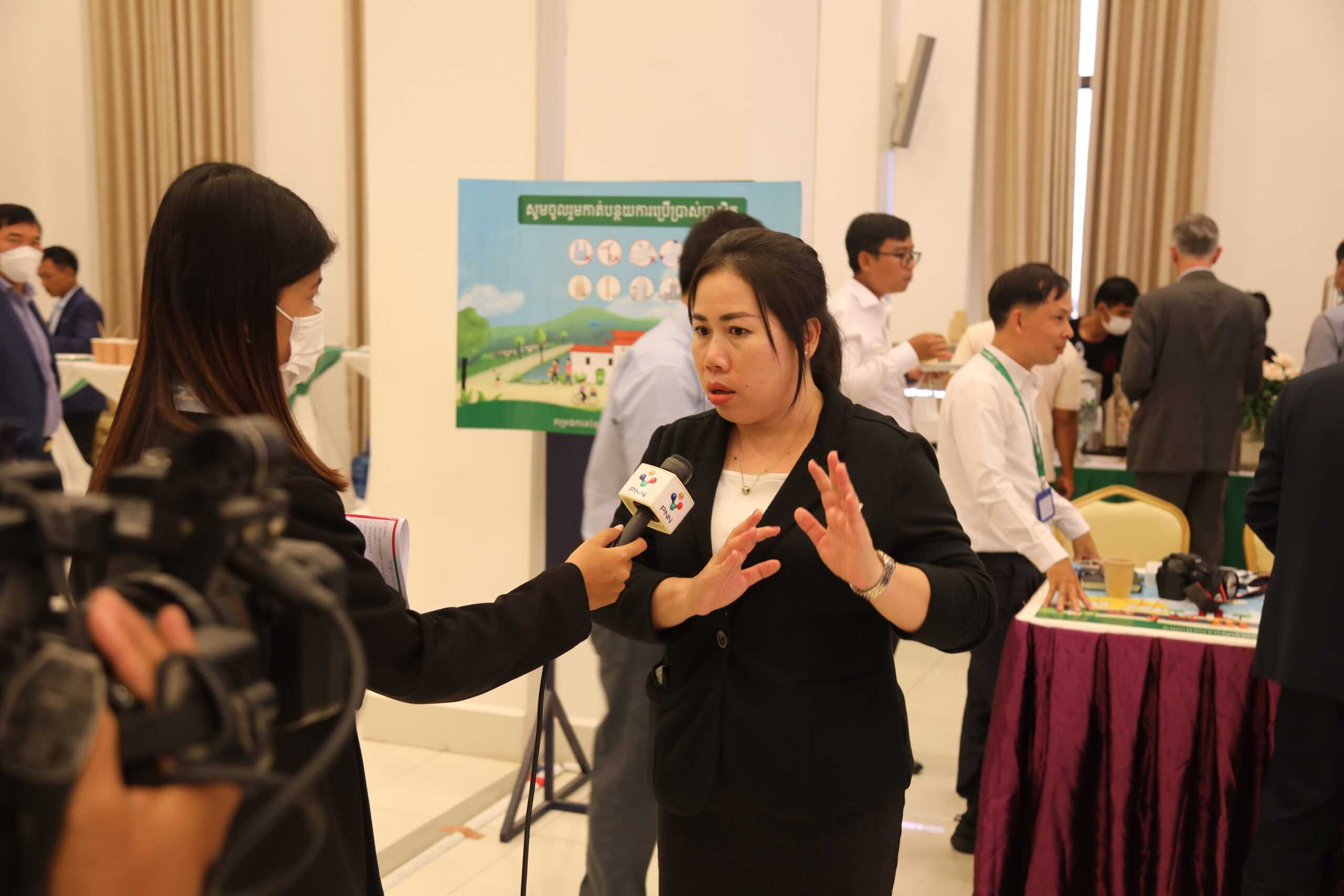
Impressions from the kick-off event. © WWF-Cambodia
Internal project workshop
Back-to-back with the official event, an internal project kick-off workshop took place, in which our WWF teams from Cambodia, Germany and Thailand could get together and discuss or coordinate on project deliverables and milestones, activities and timelines, communication and campaigning, trainings and learnings, synergies and cooperation, and much more.
The project teams also visited a farm in Phnom Penh’s peri-urban area that has been implementing sustainable practices in their agricultural production and developing value chains to connect their products to markets over the course of several years. The farm, which also complements its income as an eco-resort, provides an example of how SCP in the agri-food systems can be materialized in Cambodia with initial investment and in close collaboration with local communities. The farm’s success is based on the diversification of its production, agro-ecological principles, including a fish farm, forestry products, high added value herbal and spice products, all with support of circular models (own composting) or renewable energy (solar panel fields). The teams soaked up will the information provided and got inspired for our own project.
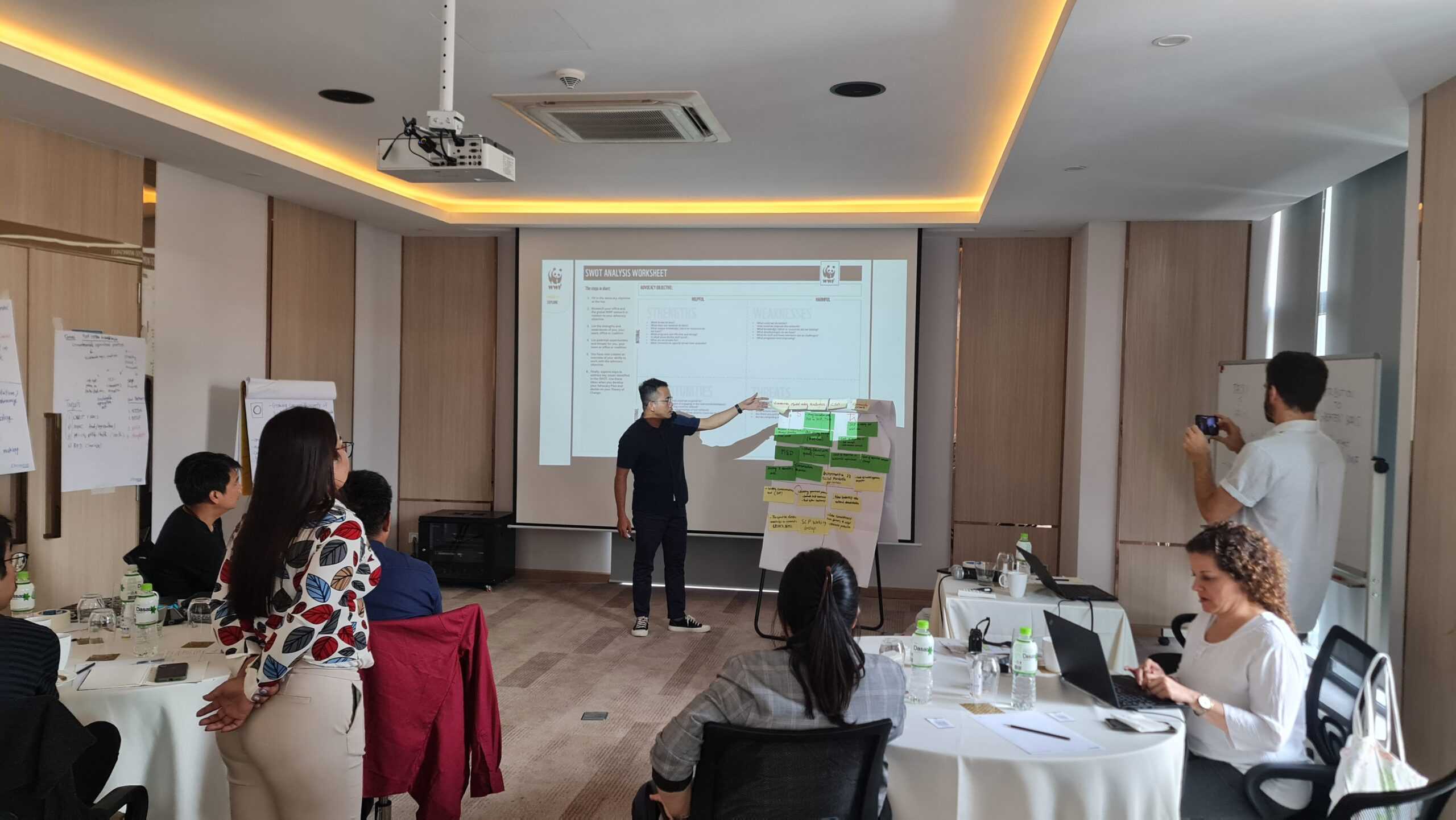
Internal project workshop. © WWF-Cambodia
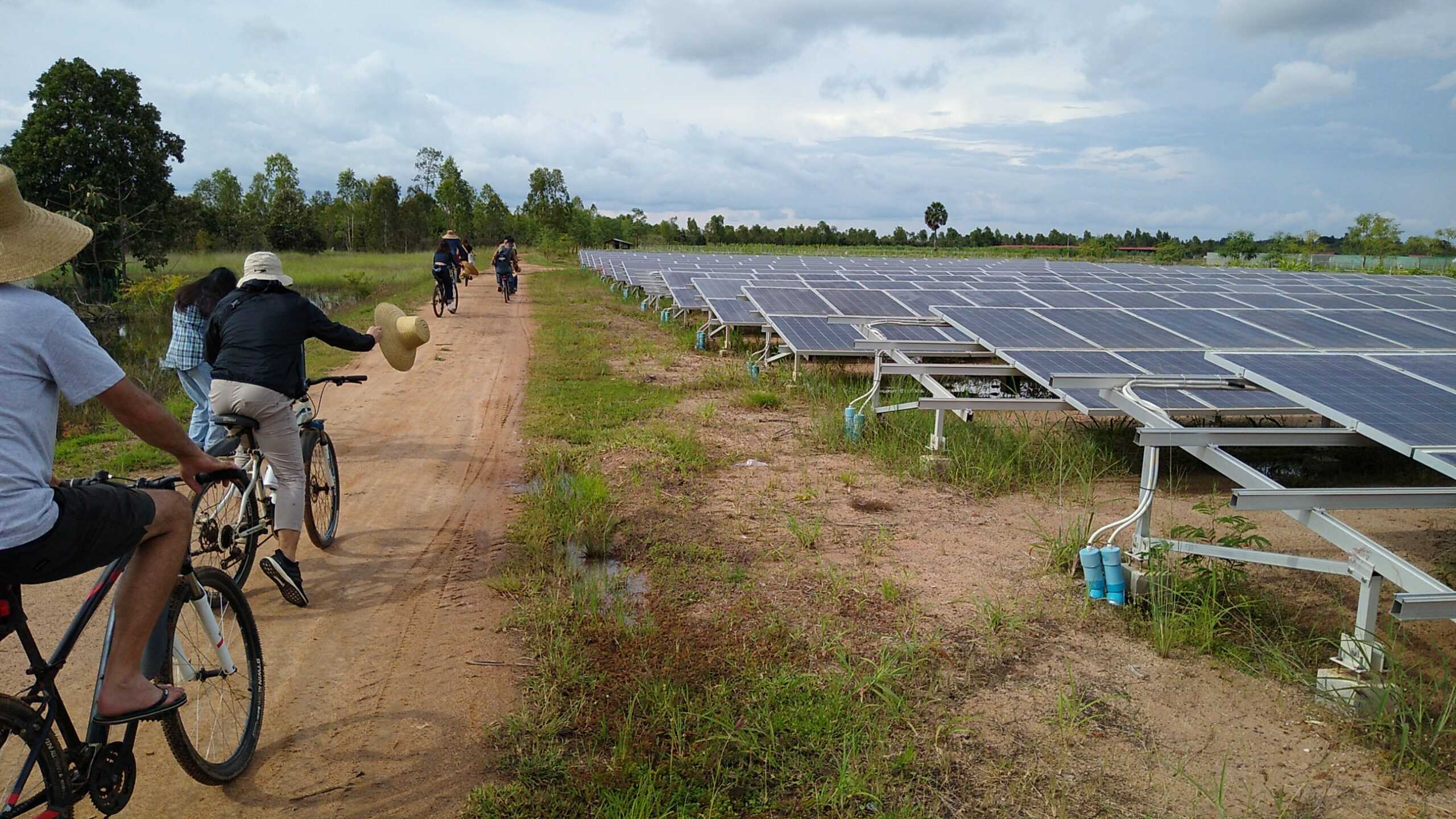
Impressions from the field trip. © WWF-Cambodia
Find out more about our work in Cambodia here:
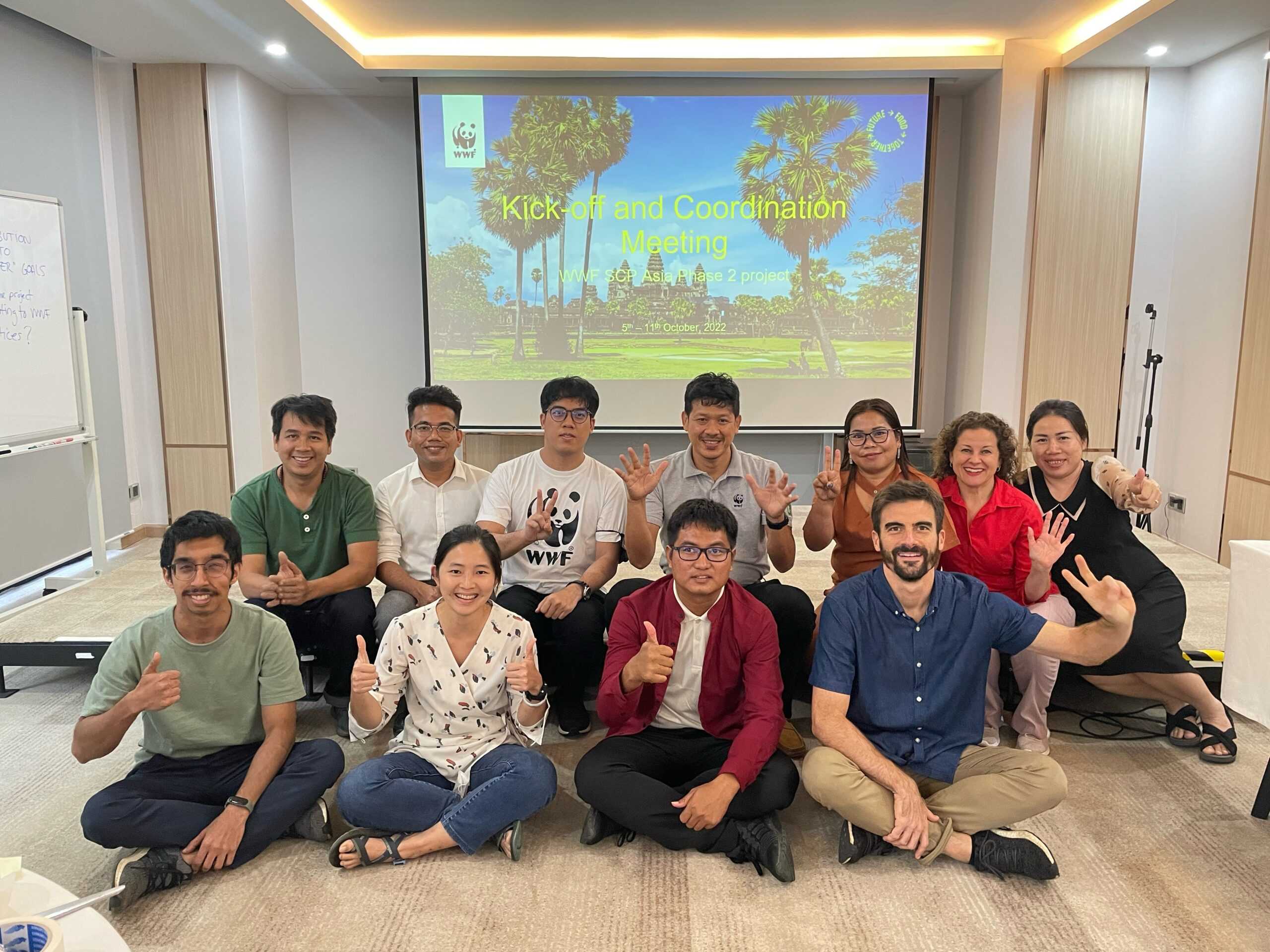
Happy about a productive workshop: Future Food Together teams well set up to start the new project in Thailand and Cambodia. © WWF-Cambodia

